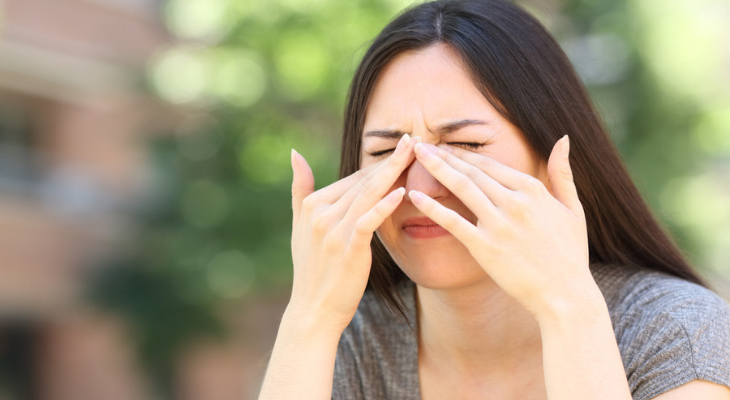
What You Can Do to Protect Your Eyes From Bad Air Quality
Exposure to pollution and other airborne irritants increases the risk of many diseases and health conditions, including heart disease, asthma, stroke, respiratory illnesses, and lung cancer. Unfortunately, your eyes may also suffer when the air quality is bad. Taking a few of these steps will improve your eye comfort and reduce the risk of vision problems.
How Air Quality Affects Your Eyes
The moist tissues in your eyes easily absorb pollutants in the air. Short-term exposure can cause irritation and inflammation, while long-term exposure can lead to age-related macular degeneration. Your risk of eye problems increases if you spend a significant amount of time outdoors when the air quality is poor.
Airborne Pollutants Can Trigger Painful Conjunctivitis
Conjunctivitis, or "pink eye," affects the conjunctiva, a layer of tissue that covers the whites of your eye and the insides of the eyelids. Redness, itching, burning, foreign body sensation, and light sensitivity are common symptoms. Although conjunctivitis can be caused by viruses, bacteria, or chemicals, air quality is also a factor, particularly among people who have allergies.
Cases of allergic conjunctivitis among Japanese ophthalmologists and their families increased when nitrogen dioxide, a common pollutant was high. Results of the survey of Japanese eye doctors appeared in the December 3, 2019 issue of Scientific Reports.
In a study published in Investigative Ophthalmology & Visual Science in January 2012, high levels of ozone, nitrogen dioxide, sulfur dioxide, and particulate matter increased outpatient visits for non-specific conjunctivitis in Taiwan.
Pollution Could Be the Reason Your Eyes Feel So Dry
Do your eyes feel itchy and uncomfortable after spending time outdoors? You may be suffering from dry eye. The condition may also be to blame for blurry vision and redness. Pollution dries out the tear film that lubricates the sensitive tissues of your eyes, which causes the symptoms. Korean researchers discovered that higher ozone levels and lower humidity levels increased dry eye. Their conclusions were based on results obtained from the Korea National Health and Nutrition Examination Survey.
Poor Air Quality Increases Your Chance of Age-Related Macular Degeneration
Age-related macular degeneration (AMD) causes blurry vision or loss of vision in the center of your eye. AMD affects the macula, the center part of the retina responsible for color and central vision. You're more likely to develop AMD if you're over age 60 or have a family history of the disease, although pollution may also play a part in AMD, according to a recent research study.
Exposure to fine particle air pollution increased the risk of AMD in a study published in the British Journal of Ophthalmology. Some study participants also experienced changes in the thickness of their retinas due to pollution.
How You Can Reduce Your Risk of Pollution-Related Eye Issues
Although you may not be able to avoid pollution completely, these tips can help you protect your eyes:
- Check Air Quality Forecasts. Take a look at the air quality forecast if you plan to spend time outdoors. If the air quality is unhealthy, it may be best to reschedule your activities if possible. Air quality forecasts are available on many weather websites.
- Cover Your Eyes. Sunglasses or eyeglasses prevent pollutants from reaching your eyes. Wrap-around sunglasses offer the most protection.
- Use Eye Drops. Lubricating eye drops keep your eyes moist and comfortable while reducing dry eye symptoms.
- Increase Humidity. Use a humidifier in your home to increase moisture and prevent your dry eyes from feeling even worse.
- Wear Your Glasses Instead of Contact Lenses. Contact lenses trap pollutants against your eye and increase your risk of developing dry eye and conjunctivitis. If you do wear your contacts on a day when the air quality is unhealthy, remove the lenses as soon as you return home and clean them immediately.
- Contact Your Optometrist. Let your optometrist know if eye irritation or inflammation doesn't improve after a day or two. Your eye doctor can prescribe eye drops that will reduce irritation, redness, and other symptoms.
Are your eyes dry or inflamed? Contact our office to schedule an appointment.
Sources:
American Lung Association: The Terrible 10: Air Pollution's Top Ten Health Risks, 4/6/17
American Optometric Association: Conjunctivitis
National Eye Institute: Dry Eye, 1/22/20
Healthline: Common Cause of Vision Loss Linked to Air Pollution – What to Know
